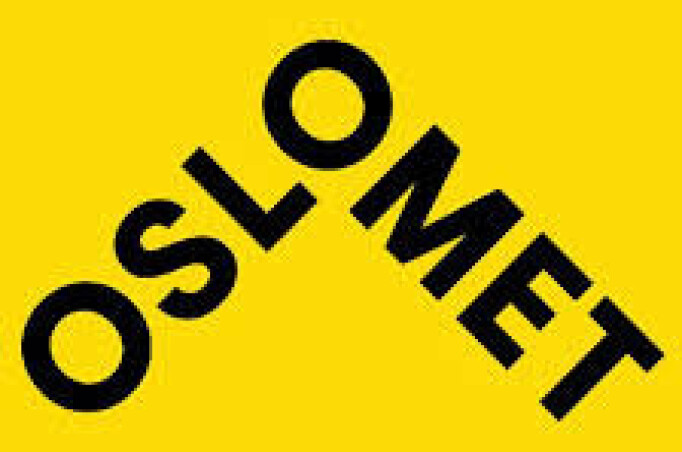THIS CONTENT IS BROUGHT TO YOU BY Oslo Metropolitan University - read more
"We need to talk about how we assess teacher students"
“The research tends to look at assignment forms or criteria for assessment, but not necessarily at what is being assessed," says researcher.

An increasing number of students are relying on artificial intelligence (AI) in their work.
This has sparked debate about whether traditional assessments like home exams and assignments are still suitable for measuring what students have learned.
“The discussions are often about how to adjust the forms of assessment now that many students are getting help from AI. I think we need to take a step back, and look at what we should assess, and why,” says Maiken Risan.
She is an associate professor at OsloMet's Department of Primary and Secondary Teacher Education.
More research on tools than on knowledge development
Risanis is behind a systematic review showing that although there is plenty of research on assessment in higher education, surprisingly little focuses on assessment in teacher education.
The study found six patterns:
- Many different research methods are used, but few studies compare assessment across countries.
- Research focuses more on types of assessment than on the knowledge being assessed.
- Research often examines specific events like exams rather than assessment as a process.
- Assessment is often researched as an isolated phenomenon. Assessment is rarely viewed in the context of study programmes, teaching, and learning.
- There is a lack of research on the relationship between formative and final assessments.
- There is little research on how to assess students' ability to integrate different types of knowledge.
Much of the research tests different types of assessment and explores the experiences of students or educators. This might involve trying a new digital platform, using multiple-choice tests, or asking students to create podcasts.
“The research tends to look at assignment forms or criteria for assessment, but not necessarily at what is being assessed. It's about the means, rather than the end,” says Risan.

How do students apply their knowledge?
Risan says they found a lot of research on assessment in individual subjects, such as mathematics or physical education.
However, this research is not always connected to the kinds of knowledge students need in their future teaching jobs.
“Researchers agree that teacher's competence is composed of different forms of practical and theoretical knowledge. But the research rarely explores how students integrate and apply these different knowledge aspects,” she says.
How do teacher students develop knowledge over time?
Risan explains that assessment has a major impact on learning and teaching, as well as how much effort students put into their studies.
She calls for more research on what types of knowledge we want students to demonstrate, and how this knowledge develops over time.
“There's an agreement among researchers that formative assessment affects summative assessment. But there's surprisingly little research that examines how these are connected,” says Risan.
She believes this gap means we know too little about the effects of formative assessment on students' learning.
As an example, she mentions studies that look at the feedback educators give along with grades. These studies rarely look at how students use that feedback to improve their next assignment or exam.
“We need a common language”
Risan and co-author Galina Shavard found little comparative research across institutions or countries. This limits opportunities to build on existing research.
“There is great variation in how researchers write and talk about assessment. Even though contexts across institutions and countries vary, we need a common language to describe how we assess, within Norway as well as internationally,” says Risan.
She also points to three key areas for further research:
- The assessment process and how it relates to students' knowledge development over time.
- The relationship between formative and final assessments.
- The kinds of knowledge we want to assess, especially how students combine theoretical and practical knowledge.
“To find out which types of assessment work best in light of the emergence of AI, we need more research on what knowledge we are actually trying to measure,” she says.
Risan adds that research should also reflect the complexity of teachers' professional knowledge and help students put this knowledge into words.
Reference:
Risan, M. & Shavard, G. A systematic scoping review of empirical research on assessment practices in initial teacher education, International Journal of Educational Research, vol. 133, 2025. DOI: 10.1016/j.ijer.2025.102753

This content is paid for and presented by OsloMet
This content is created by Oslo Metropolitan University's communication staff, who use this platform to communicate science and share results from research with the public. Oslo Metropolitan University is one of more than 80 owners of ScienceNorway.no. Read more here.
More content from OsloMet:
-
Ukrainian refugees need jobs. So why aren’t more of them being hired?
-
The mural in Oslo City Hall conceals a dramatic story – about the artist’s own life
-
Mental health problems are widespread among Ukrainian refugees
-
Only 1 in 10 Ukrainians want to return
-
How class divisions are maintained in Norway
-
Many adolescents think they're not interested in politics – until a teacher gets them to reflect on their own lives




































